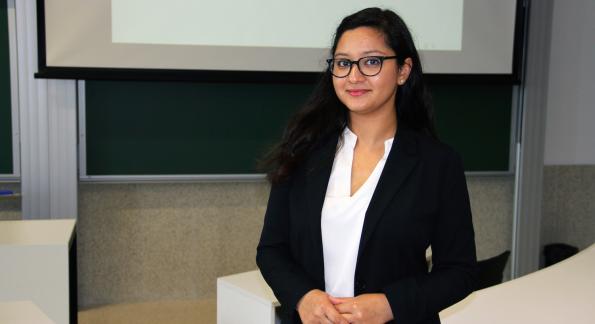
On February 13th, Randeep Kaur, a PhD candidate from the University of Texas - Austin, presented her job market paper titled: “Estimating the Role of Grandparents in Household Decisions: Evidence from Neonatal Outcomes in Multigenerational Households of India.” This question is particularly relevant in developing countries where multigenerational households, i.e. households comprised of two adult generations, are quite common. In India and South Africa more than 40% of children live in a multigenerational household.
This paper takes as a starting point the observation that grandparents could affect household decisions through a variety of ways, and therein, that grandparents have different education levels, preferences and information sets than their children. One area where this could have detrimental effects is with childcare, as there have been a number of public campaigns to improve parents’ childcare and neonatal care knowledge in recent years. This is critical as there is evidence that grandparents are an important source of information for young mothers and may limit the impact of such campaigns. Furthermore, India accounts for more than 26% of global neonatal deaths.
In this setting, the paper sets out to determine the exact role of grandparents’ information sets and bargaining power in two neonatal outcomes: vaccination and probability of feeding colostrum (a mother’s first breast milk after birth, which protects a newborn against diseases). Nevertheless, it could be that their knowledge is limited and could end up having a negative impact on children health outcomes.
Kaur uses data from India since multigenerational households are widespread and there is a low rate of neonatal care practices. The paper employs a novel identification strategy that takes advantage of changes in household structure due to the passing of the last living grandparent. Therefore, two groups are compared: children born before and after this change. This empirical strategy benefits from strong data on a number of household and individual characteristics.
Results indicate that children born after the death of their last living grandparent are 33 to 36% more likely to be vaccinated at birth. Also, the probability of being fed colostrum increases by 5.6%. Evidently, these have important policy implications, as they suggest that including grandparents on informational interventions could improve health outcomes for children. Basic calculations based on these results suggest that the presence of grandparents with their propensity to misinform on neonatal care may account for as much as 40,000 thousand neonatal deaths in India annually.






